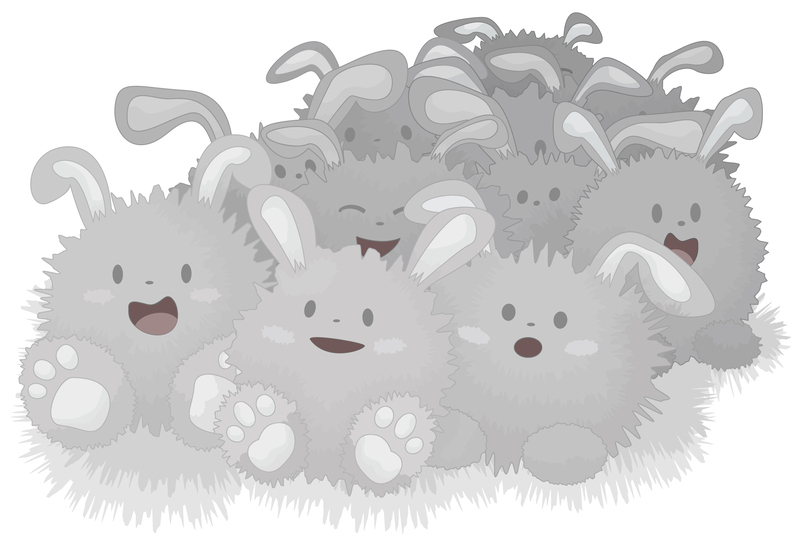Keep your home pristine and allergy-safe with these dust-free strategies
Posted on 23/08/2025
Keep Your Home Pristine and Allergy-Safe with These Dust-Free Strategies
If you're struggling with sneezing fits, persistent allergies, or simply want to keep your home sparkling clean, creating a dust-free haven is essential. Dust might seem harmless, but it harbors allergens like pollen, mold spores, pet dander, and even harmful chemicals. Whether you're an allergy sufferer or someone seeking a healthier living environment, the right dust-free strategies can make your home pristine and allergy-safe.
Understanding the Importance of a Dust-Free Home
Before diving into practical tips, it's important to recognize why maintaining a dust-free home matters. Household dust consists of tiny particles from various sources, many of which can trigger allergic reactions or worsen respiratory conditions such as asthma. According to the American Academy of Allergy, Asthma & Immunology, reducing dust is one of the most effective ways to keep allergies at bay.
- Dust contains allergens: It's a carrier for pollen, mold, pet dander, and microbes that can compromise air quality.
- Regular cleaning = better health: Effective dust management can significantly reduce allergy symptoms, fatigue, and even headaches.
- Improved comfort: A dust-free environment feels fresher and looks more inviting.

Top Dust-Free Strategies for a Pristine and Allergy-Safe Home
1. Declutter and Minimize Surfaces
Clutter not only makes cleaning harder but also provides more surfaces for dust to settle. Keeping spaces open and free from excess knick-knacks can make dusting simpler and more effective. Here's how to start:
- Store loose items in closed cabinets or bins
- Limit decorative items on shelves and coffee tables
- Opt for furniture with simple designs for easier cleaning
- Organize clothing and linen in wardrobes or sealable containers
2. Upgrade Your Vacuum Cleaner
A quality vacuum cleaner with a HEPA filter is essential for dust-free living. These filters trap over 99% of airborne particles, ensuring allergens don't recirculate in your home. For optimal results:
- Vacuum rugs and carpets at least twice a week
- Target corners, under furniture, and upholstery regularly
- Clean vacuum filters and empty dust containers frequently
3. Damp Dusting Beats Dry Dusting
Traditional feather dusters often just push particles into the air, which can worsen allergies. Damp microfiber cloths are the gold standard for dust removal as they capture and hold dust, rather than stirring it up.
- Use water or a non-toxic spray to slightly moisten your cloth
- Focus on high-touch areas: shelves, electronics, and window sills
- Wash or replace cleaning cloths regularly
4. Control Indoor Air Quality
Keeping your home's air clean is crucial for both dust and allergy-prone residents. Air purifiers with HEPA filters can drastically cut down airborne dust and allergens. Other air-quality tips include:
- Ventilate rooms daily by opening windows (when pollen levels are low)
- Use exhaust fans in the kitchen and bathroom
- Change your HVAC and furnace filters every 1-3 months
- Consider adding houseplants such as peace lilies or snake plants for natural air filtration
5. Tame Textiles and Soft Furnishings
Fabrics and textiles are notorious for trapping dust. To minimize buildup:
- Opt for blinds or washable, lightweight curtains
- Launder bedding, throws, and cushions in hot water weekly
- Choose leather, vinyl, or easy-to-clean furniture over fabric upholstery
- Use allergen-proof covers for pillows and mattresses
Room-By-Room Dust-Free Cleaning Tips
Living Room:
- Vacuum sofas and chairs with an upholstery attachment
- Wipe down coffee tables, TV screens, and remotes regularly
- Clean ceiling fans, light fixtures, and air vents every month
Bedroom:
- Change sheets and pillowcases at least once a week
- Keep floors clear and minimize stuffed animals or decorative pillows
- Store off-season clothing in sealed bins or bags
Kitchen:
- Wipe down counters and appliances daily
- Clean out pantry shelves and discard expired food
- Don't forget refrigerator coils and vent covers!
Bathroom:
- Clean tiles and floors with a damp mop
- Wipe down surfaces, especially around sinks and mirrors
- Wash bathmats and towels in hot water frequently
Additional Allergy-Safe Home Strategies
Keep Pets Groomed and Bathed
Pet dander is a major component of household dust. Regularly bathing and brushing your pets helps prevent dander from accumulating. Keep pets out of bedrooms and off beds to limit allergen exposure, and wash their bedding in hot water every week.
Moisture Control to Prevent Mold
*Mold spores* thrive in damp environments and can be a major allergen. To keep your home both clean and allergy-friendly:
- Use a dehumidifier in basements and poorly ventilated spaces
- Repair leaks in plumbing or roofing quickly
- Clean and dry any spills or water damage immediately
Establish a No-Shoes Policy
Shoes track in a surprising amount of dust and pollen. By creating a "shoes-off" entryway, you help keep outdoor allergens from spreading throughout your home. Provide slippers for guests and family members to make the transition easy.
Regular Deep Clean Sessions
Even if you stick with a solid weekly routine, a *deep clean* every few months helps tackle hidden dust traps and keeps your living space allergy-safe long-term. Key tasks for a thorough deep clean:
- Wash walls and baseboards
- Move and clean underneath large furniture
- Clean inside closets, cabinets, and behind appliances
- Steam clean carpets and area rugs
Natural and Eco-Friendly Dust Cleaning Solutions
Many commercial cleaning products contain chemicals that can worsen allergies. For a safer approach, opt for natural solutions:
- Use a vinegar-water mixture for windows and glass
- Baking soda works as a gentle, effective all-purpose scrub
- Essential oils like tea tree or eucalyptus have antimicrobial properties
- Opt for fragrance-free, hypoallergenic cleaners whenever possible
Smart Home Upgrades for Dust-Free Living
- Smart air purifiers: Automatically sense and filter dust, pollen, and allergens
- Robotic vacuums: Daily cleaning can be delegated to keep floors dust-free
- Smart thermostats and humidity monitors: Manage air quality and moisture electronically

Essential Habits for Maintaining a Dust-Free Home
- Stick to a weekly cleaning routine targeting high-traffic areas
- Delegate tasks so that all family members can take part in keeping the home clean
- Observe seasonal triggers such as increased pollen in spring, and adjust your cleaning accordingly
- Replace old carpets or rugs with hard flooring whenever possible for easier dust management
Conclusion: A Healthier, Happier Home
By following these dust-free strategies, you can create a home environment that is as pristine as it is allergy-safe. Prioritizing regular cleaning, smart tools, and allergy-aware habits ensures you and your family can breathe easy. Remember, the effort you put into keeping dust at bay not only protects your health but also makes your living space more enjoyable, welcoming, and sparkling clean.
Don't let dust and allergens take over your sanctuary. Start implementing these tips today, and enjoy the many rewards of a fresher, cleaner, and healthier home!




